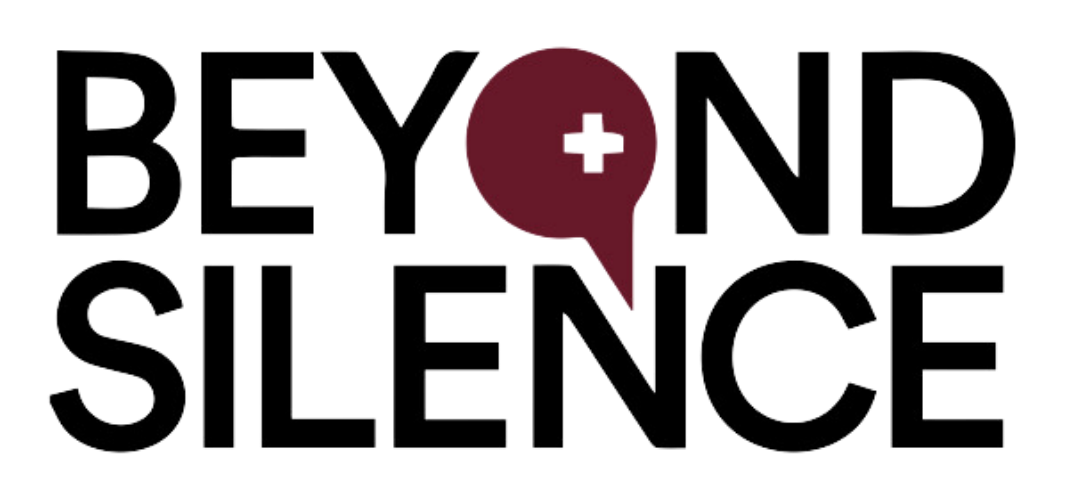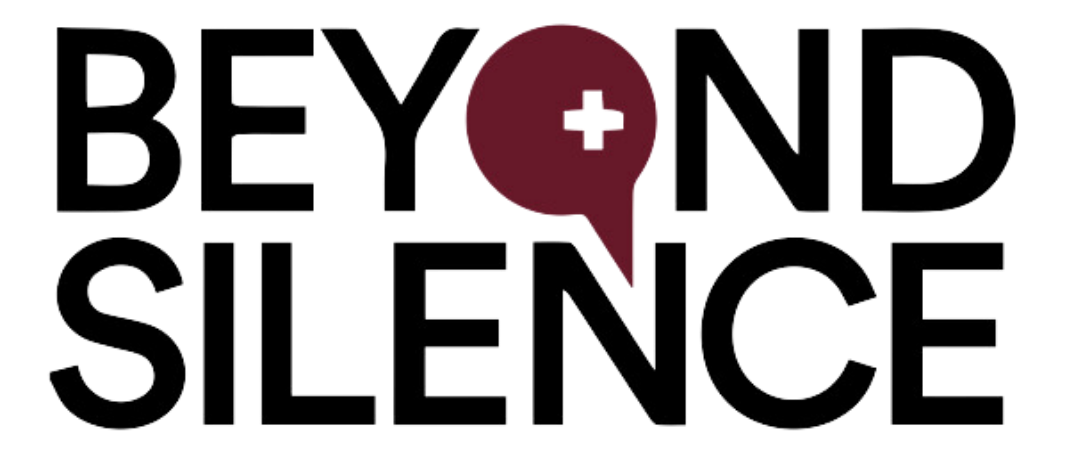
Beyond Silence is the product of over a decade of research to build evidence-based tools to support the mental health and well-being of those who work in healthcare.
We are excited about the possibilities of Beyond Silence to break down barriers to accessing high quality mental health information and support. Through real-time access to confidential and high-quality peer support, we hope to make a meaningful impact on the well-being of healthcare providers across Canada.
Between 2022-2024, a group of researchers at McMaster University focused on building a mobile health platform that includes an app for frontline healthcare workers, peer support training, resources for peer support providers, and a portal for measuring the implementation and impact of the application.
The Beyond Silence research team conducted a two-year implementation study to evaluate the effectiveness of the Beyond Silence app, which connects users with trained peer support providers, in eight diverse healthcare organizations across Canada. This research was funded by the Public Health Agency of Canada.
This study informed an evidence-based guide with recommendations to help organizations optimize the app’s implementation and impact on their workforce.
For more information or to access the Beyond Silence Implementation Guide, please contact beysilen@mcmaster.ca

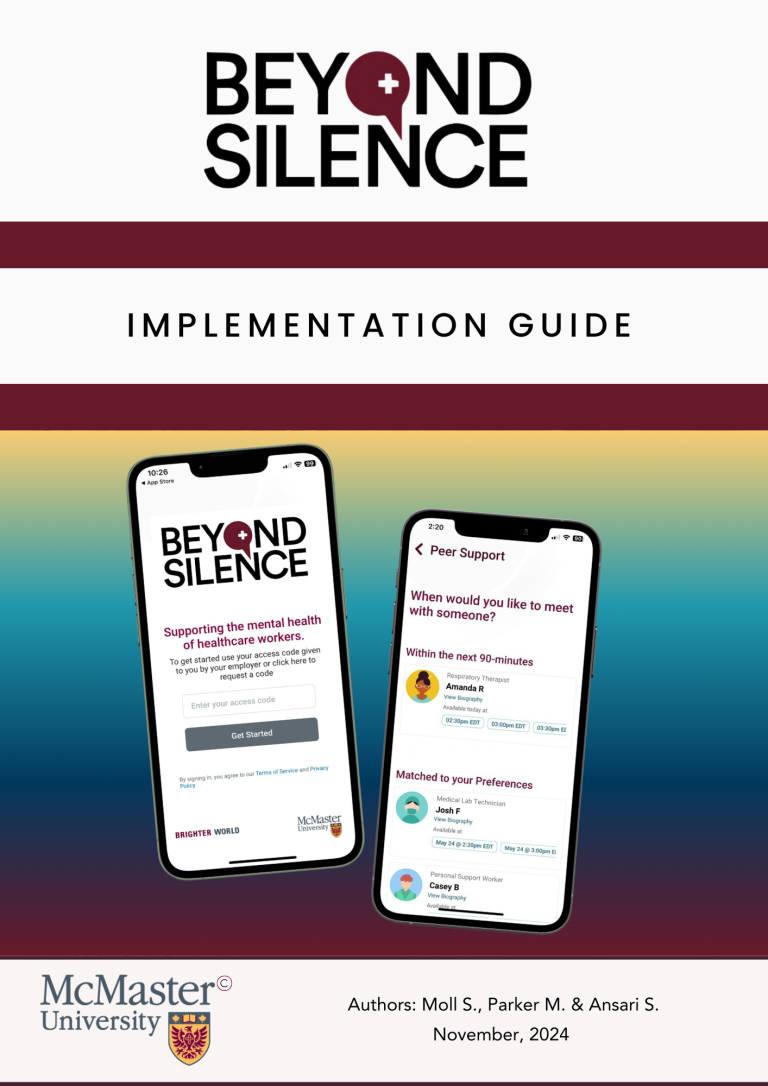
Dr. Sandra Moll, M.Sc.(OT), PhD – Professor, School of Rehabilitation Science at McMaster University
Principal Investigator
Sandra’s research interests relate to mental health/mental illness, along the continuum from mental health promotion to illness intervention. Her primary program of research focuses on workplace mental health, including approaches to building mental wellness and mental health literacy and reducing stigma in the context of work. She developed the Beyond Silence workplace training program and the Beyond Silence app platform with input from healthcare workers across Canada. Her research expertise is in co-design, qualitative methods, and implementation science.
Sandra can be contacted at molls@mcmaster.ca
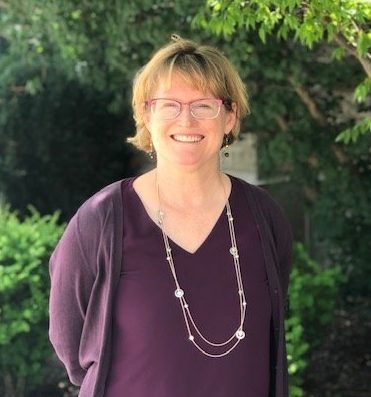
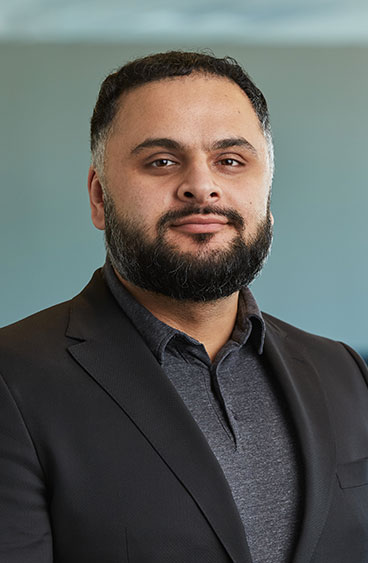
Fardous Hosseiny is the President and CEO of the Atlas Institute for Veterans and Families at the Royal Ottawa Mental Health Centre. Prior to this role, he was the interim National CEO and National Director of Research and Public Policy at the Canadian Mental Health Association. Fardous’ research focuses on mental health system transformation, Veteran and family mental health, substance use, and mental health for underserved communities.
He is a frequent media commentator and was part of the Canadian delegation to the 73rd United Nations General Assembly, contributing to the first-ever UN event dedicated to mental health. Fardous holds a Master of Science in the neuroscience of addiction and a BSc Honours from the University of Toronto. He is a Certified Health Executive (CHE) and serves on multiple national and international committees, including the Global Alliance for Mental Health Advocates and the Research Reference Group at Atlas Institute.

MaryAnn Notarianni is the Deputy CEO and Vice President, Knowledge Mobilization at the Atlas Institute for Veterans and Families where she provides strategic leadership to initiatives designed to make evidence more accessible to improve Veteran and Family mental health and well-being in Canada.
MaryAnn has had progressive leadership roles in national and provincial mental health intermediary organizations over the past decade, developing and leading initiatives in knowledge mobilization, engagement, quality improvement, suicide prevention and e-mental health. She has also worked in policy and research roles for the federal government and with national non-profit organizations. MaryAnn is a Certified Health Executive with the Canadian College of Health Leaders.

Dr. Margaret McKinnon is a Full Professor and Associate Chair of Research in the Department of Psychiatry and Behavioural Neurosciences at McMaster University, where she holds the Homewood Chair in Mental Health and Trauma. She is also the Research Lead for Mental Health and Addictions at St. Joseph’s Healthcare Hamilton and a Senior Scientist at Homewood Research Institute.
Dr. McKinnon’s research focuses on PTSD and trauma-related illnesses, particularly in military, veteran, and public safety populations. Her work aims to identify neural and behavioral correlates of these conditions and develop novel treatments to reduce their cognitive and emotional impacts. She has published nearly 150 scientific works and is a frequent media commentator on PTSD and trauma. Her research is supported by funding from organizations including the Canadian Institutes of Health Research, Veterans Affairs Canada, and the PTSD Centre of Excellence.

Dr. Rosemary Ricciardelli is Professor (PhD, Sociology) in the School of Maritime Studies and Research Chair in Safety, Security, and Wellness, at Memorial University’s Fisheries and Marine Institute. Elected to the Royal Society of Canada, her research centers on evolving understandings of gender, vulnerabilities, risk, and experiences and issues within different facets of the criminal justice system and among mariners and nurses.
She has published 11 books, over 190 journal articles and nearly 50 chapters all in the areas of PSP, criminalized persons, and wellness – broadly defined. As a sex and gender researcher, her interests lay in the social health, identity construction, and lived experiences of individuals.

Peter Smith is the president and senior scientist at the Institute for Work & Health (IWH) in Toronto and an associate professor at the Dalla Lana School of Public Health at the University of Toronto. He became IWH’s president in January 2022, after serving as the scientific co-director.
Peter holds a Master’s in Public Health from the University of New South Wales and a PhD from the University of Toronto. He has received several prestigious awards, including the Canadian Institutes of Health Research New Investigator Award and the Australian Research Council Discovery Early Career Researcher Award.
His research focuses on work injury and its impact, using large population-based surveys and administrative data. Key areas of interest include gender and sex differences in work-related health, labour market inequalities, and the experiences of vulnerable worker groups, such as newcomers and older workers.

Ed holds an Honours B.Sc. in Mathematics and Computer Science from McMaster University, an M.Sc. in Computer Science from McMaster, and a Ph.D. in Computer Science from the University of Guelph. He also has a B.Ed. and Ph.D. in Education from Brock University.
Ed is the Director of Sheridan College’s Centre for Mobile Innovation (CMI), specializing in Mobile Health (mHealth) and innovative healthcare solutions using AI, IoT, wearable computing, and AR/VR. With over $13 million in research funding, he leads a team of faculty, students, and industry partners, including Apple and Microsoft. Ed is also an Adjunct Associate Professor at McMaster University and collaborates with KITE at the University Health Network.
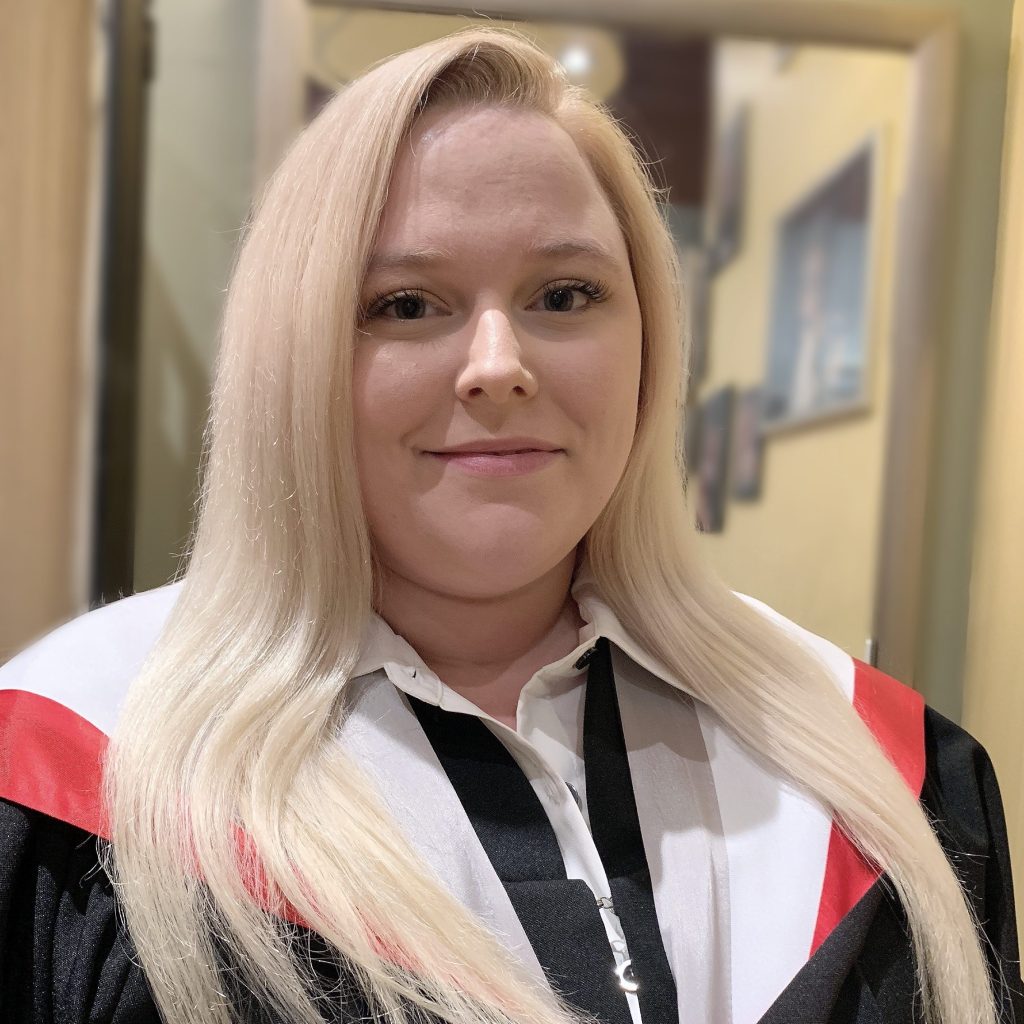
Research Coordinator
Melissa holds a Master’s Degree in Biomedical Science (Neuroscience), as well as a BSc (Hons) in Life Science and a BA in Psychology. Her academic achievements are matched by her passion for mental health advocacy, with a particular focus on improving mental health outcomes in vulnerable populations.

Research Assistant
Saleha holds a H.BSc in Health Studies (Population Health Stream) and Molecular Biology, Immunology, and Disease. She continues to grow her skills in knowledge translation, data analysis, and health policy design and evaluation. At present, her research interests surround the intersectionality of health outcomes and care, with a growing interest in critical disability studies, rehabilitation, and mental health.

Research Assistant
Raaniyah is a Molecular Biology and Genetics Co-op student at McMaster University. She is currently gaining valuable experience as a research assistant for the Beyond Silence and Peer on Call projects during her co-op term. Raaniyah is passionate about public health, health policy, and the practical application of healthcare strategies to enhance the current healthcare system.

Research Assistant
Shymega holds a Bachelor of Health Sciences (Honours) degree from McMaster University. She is continuing her education by completing a Master of Science in Global Health at McMaster University, in aims of widening the scope of health to a transcontinental lens. She is passionate about mental health advocacy among a variety of intersecting identities (e.g. refugees, youth, and parental caregivers of children with disabilities).

PhD Student, Research Assistant
This evidence based peer-led mental health literacy program designed specifically for healthcare was tested in a randomized parallel group trial that looked at the following research question:
Is customized contact-based education more effective than standard mental health literacy training in increasing the help-seeking/outreach behaviours of workers in a healthcare setting?
The research project compared the MHCC Mental Health First Aid Program and the Beyond Silence Program. It found that the programs were equally as effective at increasing mental health literacy. It also found that there were five key implementation factors that were important:
“Through the research it found that the Beyond Silence program provided more opportunity for contact-based education, healthcare specific content and opportunities for in-depth discussion of diverse perspectives. Finally the research concluded that to increase mental health literacy and reduce stigma, workplace training should be based on best practice principles of contact-based education, with contextually relevant examples and support from all levels of the organization.”
(Moll, et al., 2016)
Moll S, Patten SB, Stuart H, Kirsh B, & MacDermid JC. (2018). Beyond silence: A randomized parallel-group trial exploring the impact of workplace mental health literacy training with healthcare employee. Canadian Journal of Psychiatry.
Moll, S., VandenBussche, J., Brooks, K., Kirsh, B., Stuart, H., Patten, SB. & MacDermid, JC. (2018). Workplace mental health training in health care: Key ingredients of implementation. Canadian Journal of Psychiatry.
Through research funding from the Ontario Ministry of Labour, the training program was subsidized and offered as a 2-day training for workers in small, under-resourced healthcare workplaces across Ontario. The training program was offered across Ontario over 2 years.

